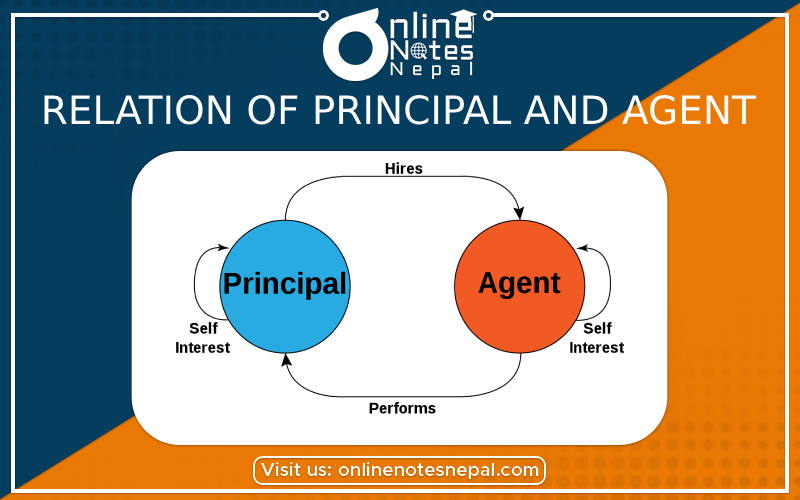Published by: Anu Poudeli
Published date: 04 Aug 2023

The relationship between a principal and an agent is a basic notion in agency law, with substantial ramifications in business and law.
Here's a rundown of the main points of this relationship:
1.Definition:
When one party, known as the principal, permits another party, known as the agent, to act on their behalf to execute certain tasks or make choices, the principle-agent relationship exists. The agent is authorized to represent and bind the principal in a variety of transactions.
2.Agency Relationship:
The agency relationship can be established through express agreement, in which both parties formally agree to the parameters of the agency, or it can be implied from the parties' actions. An agency connection may also arise by operation of law or necessity in rare instances.
3.Agent Categories:
Individuals or entities such as employees, independent contractors, or attorneys can function as agents. The agent's authority is determined by the type of agency established: general agency, special agency, or universal agency.
4.Agent Duties and Obligations:
The agent is obligated to act in the best interests of the principal, placing the principal's interests ahead of their own. This responsibility encompasses the duties of loyalty, care, disclosure of information, and following the principal's directions.
5.Principal's Duties and Obligations:
The principal's primary responsibility is to compensate the agent for the services agreed to in the agency contract. The principle is also responsible for providing the agent with the resources and knowledge they need to perform their duties effectively.
6.Agent Authority:
The agent's authority can be either actual or apparent. Actual authority is conferred expressly by the principle, whereas apparent authority occurs when the principal induces third parties to believe that the agent has authority. The principal may be obligated by the agent's conduct even if the agent exceeded their actual power, as long as they acted within the extent of their seeming authority.
7.Agency Termination:
The agency relationship can be terminated by mutual consent, completion of the objective for which the agency was formed, expiration of the agreed-upon time frame, or unilateral termination by either party. Termination can also occur as a result of the principal's or agent's death or incapacity.
8.Liability :
Subject to certain restrictions, the principal may be held accountable for the agent's activities if the agent acted within their actual or apparent authority. Similarly, the agent may be held accountable for failing to perform their obligations or acting outside of their jurisdiction.
9.Ratification:
In rare instances, an agent may operate without first obtaining permission from the principal. The principal, on the other hand, can subsequently opt to confirm the agent's conduct, making them legally obligatory.
Understanding the principal-agent relationship is critical in a variety of sectors, including business transactions, employment contracts, real estate transactions, and legal representation. Clear agreements and attention to legal principles aid in the smooth operation of the agency relationship and the avoidance of avoidable disputes.